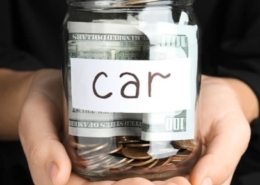How Do I Know If I’m Getting A Good Deal On A Car?
Arm yourself with knowledge to spot a great car deal and avoid overpaying.
Buying a car is a significant investment; ensuring you get a good deal can save you thousands of dollars. But how do you know if you’re truly getting a good deal?
The process can be overwhelming with so many variables like the car’s price, financing options, and trade-in value.
This article guides you through the steps to determine if the deal you’re considering is worth it. From researching fair market prices to understanding negotiation tactics, we’ll cover everything you need to make an informed decision.
By the end of this guide, you’ll have the confidence to walk into any dealership and secure the best deal possible on your next car purchase.
Car Buying Tip: Finding a reasonable price for your first car can be tough today, where many buyers pay above retail. However, you can still snag a great deal by requesting free car quotes to compare local dealer prices.
Factors to Consider When Evaluating a Car Deal
When evaluating the value of a car deal, several key factors must be considered.
By carefully examining these variables, you can gain insight into whether you’re getting a good deal on the vehicle you’re interested in purchasing.
1. Vehicle Price
Of course, the price of the car is one of the most critical factors to consider when evaluating a deal. Use the best online car-buying tools to research the market value of the make and model you’re interested in, considering factors such as mileage, condition, and location.
By comparing prices from multiple sources, you can determine if the price you’re being offered is fair.
2. Financing Terms
Evaluating the dealership’s financing terms and the purchase price is essential. Compare the interest rate, loan term, and any additional fees to ensure you get a competitive financing package.
Be wary of any hidden costs or unnecessary add-ons that could drive up the total cost of the vehicle.
3. Trade-in Value
If you’re trading in a vehicle as part of the deal, pay close attention to the trade-in value being offered.
Research the trade-in value of your car to ensure that you’re receiving a fair price for it.
You may also want to consider getting a better deal by selling your car privately.
4. Warranty and Maintenance
Consider the warranty and maintenance coverage offered with the vehicle.
A comprehensive warranty can provide peace of mind and protect you from unexpected repair costs down the line. Be sure to read the fine print and understand what is and isn’t covered by the warranty.
- How to Buy a New Car Below Factory Invoice Price – True dealer cost and the factory invoice price are not the same… dealer cost can be much lower.
- Figure a Fair Profit New Car Offer – How to calculate a fair profit new car offer.
- How to Buy a New Car Online – Not sure where to start? Use my step-by-step guide on how to buy a new car online.
How to Negotiate a Good Deal on a Car
Negotiating the price of a car can be intimidating, but with the right approach, you can increase your chances of getting a good deal.
Here are some tips to help you negotiate effectively:
1. Do Your Research
Before you start negotiating, make sure you’ve done your homework. Use online resources such as RydeShopper and Edmunds to research the market value of the car you’re interested in and any incentives or promotions the manufacturer offers.
Having this information at your fingertips can give you leverage during the negotiation process.
2. Be Prepared to Walk Away
One of the most powerful negotiation tactics is being willing to walk away if the deal isn’t right.
By showing that you’re not desperate to make a purchase, you can pressure the seller to offer you a better deal. Don’t hesitate to take your time and explore other options if necessary.
3. Focus on the Total Cost
Instead of getting caught up in monthly or down payments, focus on the total cost of the vehicle. When evaluating the overall cost of the car, consider factors such as interest rates, financing terms, and any additional fees.
This can help you avoid being persuaded by a seemingly good deal that may cost you more in the long run.
4. Get Everything in Writing
Once you’ve negotiated a deal that you’re happy with, make sure to get everything in writing.
This includes the purchase price, financing terms, trade-in value, and any additional agreements or promises made by the seller.
A written contract can protect you in case of any disputes or misunderstandings.
Real-Time Bargain Hunting: Turn to Edmunds for instant access to the latest and greatest local deals, saving you time, money, and stress.
Signs of a Bad Deal
While knowing how to identify a good deal on a car is essential, it’s equally crucial to recognize the signs of a bad deal.
Here are some red flags to watch out for:
1. High Interest Rates
If your car loan’s interest rate is significantly higher than average, it could be a sign of a bad deal.
High interest rates can increase the total cost of the vehicle and lead to higher monthly payments. Compare rates from multiple lenders to ensure you’re getting a competitive offer.
2. Pushy Sales Tactics
If the salesperson uses aggressive or manipulative tactics to pressure you into making a purchase, it’s a clear sign of a bad deal. A reputable dealership will respect your decision-making process and provide all the information you need to make an informed choice.
Don’t be afraid to walk away if you feel uncomfortable or pressured.
4. Poor Warranty Coverage
If the vehicle’s warranty is limited or doesn’t provide adequate coverage, it could be a sign of a bad deal. A reliable warranty can protect you from costly repairs and give you peace of mind when driving your new car. Review the warranty terms carefully and ask for clarification on anything you’re unsure about.
Frequently Asked Questions
How can I research the fair market price for a car?
You can use online tools like RydeShopper, Edmunds, and CarsDirect to check the fair market value of the car you’re interested in. These resources provide pricing based on the car’s make, model, year, condition, and local market trends.
What factors should I consider beyond the sticker price?
In addition to the sticker price, consider the total cost of ownership, including financing rates, insurance premiums, fuel efficiency, maintenance costs, and depreciation. These factors can significantly affect the overall value of the deal.
How can I negotiate effectively with a car dealer?
To negotiate effectively, come prepared with research on the car’s market value, have a clear budget in mind, and be ready to walk away if the deal doesn’t meet your expectations. It’s also helpful to get pre-approved financing to strengthen your negotiating position.
Is it better to buy new or used to get a good deal?
Both options have pros and cons. New cars offer the latest features and warranties but depreciate quickly. Used cars are more affordable and depreciate slower but may have higher maintenance costs. Consider your budget, preferences, and how long you plan to keep the vehicle.
What red flags indicate I might not be getting a good deal?
Watch out for high-pressure sales tactics, deals that seem too good to be true, excessive add-ons, unclear financing terms, and lack of transparency about the car’s history or condition. Always review the contract thoroughly before signing.
Final Thoughts: How to Know If You Got a Good Deal
Making a smart car purchase involves carefully considering multiple factors, from price and financing terms to warranty coverage and trade-in value.
By following the tips and guidelines in this article, you can confidently navigate the car-buying process and ensure that you’re getting a good deal on a vehicle.
Remember to take your time, do your research, and don’t hesitate to negotiate to secure the best possible deal.
With the correct information and preparation, you can drive away in your new car feeling satisfied and confident in your purchase decision.















